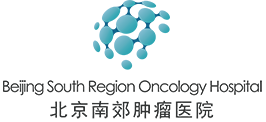On March 13, 2025, the top international journal Nature Medicine published MediLink’s B7-H3 targeting antibody drug conjugate (ADC) YL201 Phase 1/1b trial.
The trial included a dose-escalation part (phase 1) and a dose-expansion part (phase 1b). A total of 312 patients were enrolled across multiple tumor types, including extensive-stage small cell lung cancer (ES-SCLC), nasopharyngeal carcinoma (NPC), non-small cell lung cancer, esophageal squamous cell carcinoma and other solid tumors.
Among the 287 patients evaluable for efficacy, the objective response rate (ORR) was 40.8% , and the disease control rate (DCR) was 83.6%. The median progression-free survival (mPFS) was 5.9 months, and the median duration of response (mDOR) was 6.3 months.The median overall survival (OS) was not mature.
Among the 48 patients with baseline brain metastases, 21 were evaluable; the intracranial ORR was 28.5%; and the DOR was 6.2 months.
All patients with ES-SCLC had prior treatment with platinum-based chemotherapy, and 95.8% of patients also had prior treatment with programmed death 1 (PD-1) or programmed death ligand 1 (PD-L1) antibody. The ORR was 63.9%; the DCR was 91.7%; the mPFS was 6.3 months; and the mDOR was 5.7 months. In the dose-escalation study, five patients with SCLC who received prior treatment with a topoisomerase 1 inhibitor (topotecan or irinotecan) were enrolled, with only one patient responding (ORR, 20%). Of the 70 patients with NPC, all had prior treatment with anti-PD-L1 and platinum-based chemotherapy, and 84.3% (59/70) had two or more lines of prior systemic therapies. Two of the patients with NPC achieved a complete response (CR), with an ORR of 48.6% and a DCR of 92.9% . The mPFS was 7.8 months, and the mDOR was 8.4 months . A total of 64 patients with wild-type NSCLC were evaluated, including 28 with adenocarcinoma, 12 with squamous cell carcinoma and 24 with lymphoepithelioma-like carcinoma (LELC). In total, 90.6% (58/64) of patients with NSCLC had prior treatment with anti-PD-L1 and platinum-based chemotherapy. The ORR values for the patients with lung adenocarcinoma, squamous cell carcinoma and LELC were 28.6%, 8.3% and 54.2%, respectively, and the mDOR was 13.6 months, 2.6 months and 6.7 months, respectively.
YL201 demonstrated an acceptable safety profile and a promising efficacy in heavily pretreated patients with advanced solid tumors, particularly in those with ES-SCLC, NPC or lymphoepithelioma-like carcinoma.
YL201 is a novel ADC comprising a human anti-B7H3 monoclonal antibody conjugated to a novel topoisomerase 1 inhibitor via a protease-cleavable linker, with a drug-to-antibody ratio of 8. YL201 was developed using MediLink’s tumor microenvironment activable linker-payload (TMALIN) platform, which is characterized by a highly hydrophilic linker-payload, remarkable stability in circulation and a dual payload release mechanism that includes cleavage both extracellularly in the tumor microenvironment and intracellularly within lysosomes. In a preclinical study, YL201 exhibited potent anti-tumor activity in various CDX/PDX mouse models with SCLC, NSCLC, esophageal cancer and ovarian cancer. The efficacy and safety data from this preclinical study suggest a favorable benefit–risk balance, supporting further development of YL201 in the clinic.
At present, there are still many clinical trials of new anti-cancer technologies in China seeking patients. Consultation on new drugs and technologies, you can contact Beijing South Region Oncology Hospital International Department.
Phone Number:4008803716
Email:myimmnet@163.com
Post time: Apr-08-2025

